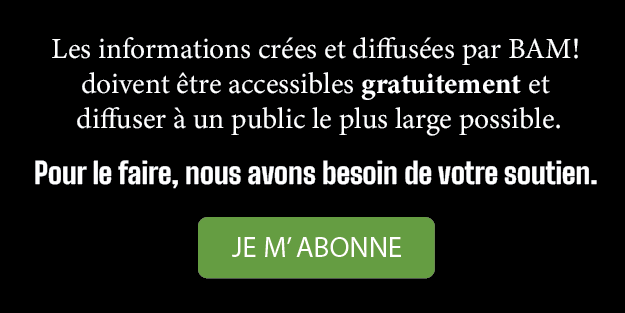Shocking revelation at the Fuellmich trial: he was targeted by the German security services, which were instructed to infiltrate his close circle, compromise his reputation and cooperate with the prosecutor's office to facilitate his indictment. Analysis of an explosive document that could turn into a state scandal.
In a dramatic turn of events, on Tuesday April 2, on the 9th day of Reiner Fuellmich’s trial, one of the three defense lawyers, Christof Miseré, read out a top‑secret document in court, presumably from the BKA, the Federal Criminal Police Office, or the BNA, the Federal Domestic Intelligence Service. The dossier, opened in August 2021, reveals that German security services had carried out an in‑depth investigation into the activities of Reiner Fuellmich[1], considered a dangerous personality due to his considerable following[2] and listed as a threat to democracy and internal security.
Below is the translation of the confidential document (divided into three sections), obtained by our German correspondent, Kerstin Heusinger, present at the trial.
|
Date: August 24, 2021 / Author: B** Introduction: Facts: Extended analysis: |
Was it Reiner Fuellmich's political plans that posed a "threat" to German Security, or more broadly his legal actions (Corona Committee, Grand Jury[3]) against the instigators of repressive measures under the pretext of the "Covid pandemic"?
Destroy Fuellmich or his political plans?
Fuellmich wanted to get involved in politics and had announced his candidacy for the federal elections, on the list of the Die Basis, a citizens' party which he had helped found. However, while the police documents clearly identify the lawyer as a threat, they offer absolutely no evidence of his alleged "anti‑democratic tendencies", nor of any risk of disturbing public order or endangering the "democratic process". Quite to the contrary, Reiner Fuellmich was committed to defending democratic principles such as freedom of speech and transparency.
|
Recommandations: 1. Intensification of surveillance: 2. Political incompatibility and legal proceedings: 3. Criminal prosecution: 4. Public communication and prevention: Preventive measures: The promotion of prevention programs against extremism targeting Reiner Fuellmich's followers and a collaboration with civil society organizations are important steps to limit his influence. |
Accumulated anomalies
In the light of the confidential document’s recommendations, the Göttingen public prosecutor's case against Reiner Fuellmich for breach of trust is revealed in a new light. Incongruous accusations, unorthodox methods, shaky or extreme procedures which flirt with the limits of legality: the accumulated anomalies which punctuate this case finally start to make sense.
What is the Fuellmich case all about? Let's take a quick look at the charges and the chronology of events. Justus Hoffmann and Antonia Fischer are two lesser‑known German lawyers who, along with the high‑profile Reiner Fuellmich and Viviane Fischer, were founding members of the Corona Investigative Committee, set up in 2020. However, following internal disagreements, the two lesser‑known lawyers decided, in August 2022, to file a complaint against Fuellmich, accusing him of embezzling part of the donations received by the Corona Committee.
Corona Committee funds: embezzled or secured?
Currently the prosecutor's office has retained only one charge against Reiner Fuellmich, out of the eighteen he was initially accused of. It concerns a loan of €700,000 taken out by Fuellmich from the Corona Committee. Reiner Fuellmich's defense nevertheless asserts that it has provided the court with all the documents proving that Fuellmich had completed all the necessary formalities to legally borrow the money, with Viviane Fischer's agreement. The money was to be repaid on completion of the upcoming sale of his house in Germany. The defense also explained that Reiner and Viviane had sought to secure the Corona Committee's funds by dispersing them across several accounts, as they feared that the Committee's account was potentially at risk.
There was also a series of oddities in the legal proceedings. An initial prosecution file was reportedly submitted to a senior prosecutor at the Göttingen public prosecutor's office and rejected for lack of substance. Subsequently, a junior prosecutor, the one currently in charge of the case, was transferred from Hanover's prosecutor’s office. He then took over the case, initiated the official prosecution and issued two arrest warrants against Fuellmich, a German warrant in March of 2023, followed by a European one in May.
Infiltration: what murky role did the police play?
If we look at the date the confidential police file was created, we observe that at the time the case against Reiner Fuellmich was opened, the police had been instructed to facilitate criminal proceedings and to cooperate with the prosecutor's office, in order to secure an indictment. So, is the case against Fuellmich the result of some serious wrongdoing? Is it the result of resentment built up by the overshadowed Committee members? Or is it, primarily, the result of the interference of infiltrated agents in Reiner Fuellmich's close circle, tasked with recruiting "suitable third parties", who were instrumental in making accusations and calling for the arrest of the Corona Committee's figurehead?
An insecure plaintiff
According to our German informants, Justus Hoffmann agreed to file a complaint provided that Reiner Fuellmich would not be given the opportunity to speak publicly before the trial. He later also requested a closed trial, which the court rejected.
This may explain why Reiner Fuellmich, who was living in Mexico at the time, was not informed of the criminal charges brought against him, nor of the arrest warrants issued against him. What role did the German security services play in the extraordinary circumstances surrounding the lawyer's apprehension in Tijuana, in the absence of any international arrest warrant?
A kidnapping on Mexican soil?
Following the loss of his passport, Reiner Fuellmich was summoned to the German embassy in Tijuana on October 11, 2023, to collect his new passport. While at the embassy he was illegally seized and escorted onto a plane bound for Germany, where he was arrested - this time legally - as soon as he set foot on German soil.
Since then, Fuellmich has been incarcerated at the Rosdorf high‑security prison, in appalling conditions, disproportionate to the charges against him. His requests for parole, pending a verdict, have been systematically rejected. Justification for the objection: he is a flight risk.
It is important to note that, Viviane Fischer, the fourth member of the Corona Committee, was not allowed to join the plaintiffs, despite two successive requests. Is this because, like Reiner, she borrowed money from the Corona Committee, but has not been troubled by the law?
Entrapment or just a succession of misunderstandings?
An important element of this case is that the money Reiner is accused of embezzling is no longer in his possession. He is however charged with failing to reimburse his loan from the Corona Committee, following the sale of his property (which was contractually agreed). Once again, this is the result of improbable procedural anomalies. Among the plaintiffs against Reiner Fuellmich was a fifth lawyer, Marcel Templin. He had been commissioned by Fuellmich, as part of the preparation of a series of class actions, to collect mandates and deposits from people wishing to join the collective proceedings. However, due to data protection irregularities, Fuellmich withdrew Templin from the case and took over the vast majority of the mandates directly.
Marcel Templin nevertheless succeeded in having a debt recovery claim added to the sale of Reiner Fuellmich's property, stating that, with interest, he was owed 1.15 million euros. This resulted in almost the entire proceeds from the property sale being paid directly to Marcel Templin's account, leaving Reiner unable to repay the Corona Committee and justifying the proceedings against him. Impeccable trap and timing. Was it intentional or not?
Impartiality of justice in question
Let's go back to the consequences of the police file on Reiner Fuellmich, read out by his lawyer in court. Faced with livid judges and a prosecutor unable to hold back a nervous giggle, Reiner's lawyer called for a suspension of the trial, arguing that the neutrality of the court could not be guaranteed. He also announced his intention to file several complaints. His request for a suspension was, however, rejected by the judges, who denied any knowledge of the defendant's police file or of the procedures recommended by the police. The Fuellmich trial will therefore continue as planned. The next sessions are scheduled for April 19 and 24, 2024.
|
Note: |
Who’s afraid of Reiner Fuellmich?
What was precisely the "multi‑layered" response deployed by the German authorities to neutralize Reiner Fuellmich? How is it possible to ruin, with impunity, the career and life of a citizen under the pretext of safeguarding democracy? Reiner Fuellmich's only "crime" was to advocate human and civil rights, which have been under attack since the "pandemic". The police file also includes a reference to the need to "fight disinformation", which Reiner Fuellmich is accused of spreading. Fighting disinformation is the new mantra taken up in chorus by western governments as well as by the European Commission. It justifies the multiplication of freedom‑destroying laws, such as the DSA (Digital Service Act).
Who are the police really protecting? Are they protecting the public, deemed incapable of forming their own opinions? Or are they protecting leaders who despise their citizens as much as they fear them?
KAro for BAM! - with information from Kerstin
COMING SOON :
- Highlights of the Fuellmich trial, by BAM's court correspondent in Göttingen, Kerstin Heusinger.
- Reiner Fuellmich's shocking conditions of detention, a report by our correspondent.
BAM! text and illustration
[1] Reiner Fuellmich is a German and Californian barrister specializing in consumer protection, with notable victories against multinationals such as Deutsche Bank, Volkswagen and Kuehne+Nagel.
[2] Since July 2020, he has been a leading figure in the global resistance to the "plandemic". Together with Viviane Fischer, he is the founder of the Corona Investigative Committee and the Grand Jury - People's Tribunal of Public Opinion, designed to reveal the truth about the Covid crisis and its totalitarian foundations. The hearings of over 150 international experts, broadcasted live, has contributed to substantiate the responsibility of leaders such as Anthony Fauci, Bill Gates, or Tedros Ghebreyesus, Director of the WHO...
[3] Since July 2020, he has been a leading figure in the global resistance to the "plandemic". Together with Viviane Fischer, he is the founder of the Corona Investigative Committee and the Grand Jury - People's Tribunal of Public Opinion, designed to reveal the truth about the Covid crisis and its totalitarian foundations. The hearings of over 150 international experts, broadcasted live, has contributed to substantiate the responsibility of leaders such as Anthony Fauci, Bill Gates, or Tedros Ghebreyesus, Director of the WHO...
















